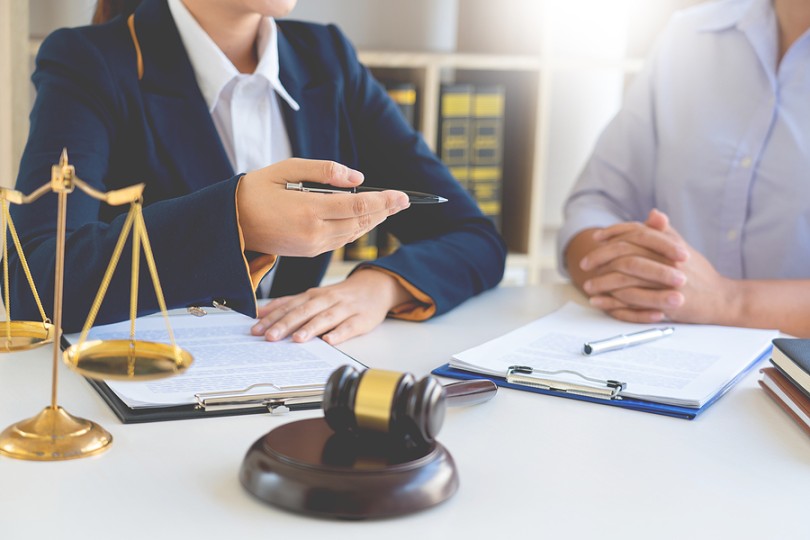When looking for the best family lawyers in Sydney to represent you, there are many different factors to help you make your final decision. During your search, you should find family lawyers who keep up to date with current issues in the family law jurisdiction; one who is a tenacious advocate for you; and, one who has the resources to apply to your case.
It is crucial to hire a family lawyer who can keep up with matters and constantly learn, which is why at O’Sullivan Legal we are intent on encouraging our team to attend seminars and training sessions to upskill their professional ability.
On Wednesday 15 June 2022, our family lawyers had the pleasure of attending a seminar hosted by the Greater West Family Law Practitioners’ Association titled ‘Credit Issues in Family Law: Humility v Hubris’, as part of their Twilight Seminar Series. The Honourable Justice Tom Altobelli, who delivered the Seminar, made several key points about issues of credibility commonly encountered by the best family lawyers in Sydney.
Credit issues are often at the core of legal matters for family lawyers and should be considered from the beginning of the case, during the initial consultation.
Credit findings are the evaluation of multiple competing hypotheses. It is the role of the best family lawyers to ascertain who is telling the truth based on the evidence presented. This sheds light on the importance of our family lawyers educating our clients to be honest and frank in their evidence.
His Honour referred to the case of Onassis v Vergottis [1968], a House of Lord’s case which our family lawyers made note of. In these cases, the dissenting comments of Lord Pearce are relevant questions to consider in ascertaining a witness’ credibility:
- Is the witness a truthful or untruthful person?
- Has the witness recalled the conversation accurately?
- Has the witness’ recollection been subsequently altered by unconscious bias, wishful thinking, or by discussion of it with others?
- Is the witness speaking based on emotion and not facts? This tends to conjure up a legal right that is non-existent.
- How strong is the witness’ memory? When it fades, their imagination can become more active.
- How valuable are the contemporaneous records?
- The judge must question the witness’ testament e.g. is it possible that the witness was mistaken?
- Is there a motive for the witness’ statement?
His Honour continued to speak of the following topics:
- The relationship between their credibility and reliability
- Credibility is not only about truthfulness but also objective reliability. This means that they can observe or remember events about which she or he is giving evidence.
- Truthfulness and reliability are not necessarily synonymous. A credible witness may give inaccurate and therefore unreliable evidence because of imperfect observation, faulty memory, overactive imagination, emotional disturbance, self-interest, and other forms of bias.
- Humans have an unlimited capacity for honesty, believing something that bears no relationship to what accurately happened.
- Internal consistency
- Self-contradictory evidence is typically less reliable than internally consistent evidence.
- Affidavits should always refer to predecessor affidavit(s).
- Objective facts triumph over other testimonies.
- Is witness testimony consistent with independent evidence?
- Is oral evidence consistent with contemporaneous documentation?
- No evidentiary hierarchy and the role of contemporaneous documentation are not absolute.
- Veracity or dishonest evidence
- What about when pieces of evidence are incredibly different? This makes it obvious that the witness is deliberately giving evidence they know to be untrue.
- Demeanour
- Usefulness of this in assessing credibility is very limited, however, this still can be considered, especially when other factors are more reliable.
- Unreliability of this is accentuated when the witness is of a different culture, race, etc.
- Motive
- Relevant to fact-finding – we tend to place more weight on evidence given by disinterested witnesses.
- Beware of partisan witnesses.
- Inherent improbability
- What is the relevancy?
- Personal impressions should be set aside.
- Credibility questions are decided by weighing up probabilities by reference to the ordinary course of human behaviour.
- Character evidence
- How does it play a role for our family lawyers?
- Expert evidence
- Consider the significance of their testament.
- It is important to not let it distort the fact-finding process, as it is different from being given evidence.
- Recollection or reconstruction
- True recollection vs. innocent reconstruction – how hard is it to distinguish?
- Reconstructing does not make a witness a liar. In some cases, unconscious bias kicks in that’s why our family lawyers need to recognise the capacity for self-justification from our clients.
- Documentary and other records
- Absence of a record is often telling
- Contemporaneous records are best
- Considering evidence as a whole
- Consider the totality of relevant evidence, no matter its nature.
- Judges must keep an open mind until all evidence is completed, and submissions are made.
- Where the balance of probability applies, the area of doubt may be contemplated.
In summary, it was a privilege to hear His Honour’s insight into the credit issues commonly encountered in family law litigation. This presentation shed significant light on the ideal practices required of family lawyers in Sydney to ensure the best and most accurate evidence is presented to the Court in reaching a fair and just outcome. The top family lawyers in Sydney keep abreast and up to date through attendance at such seminars.
If you are facing a legal issue and are looking for the best family lawyers in Sydney to represent your case, then look no further than our team here at O’Sullivan Legal.

